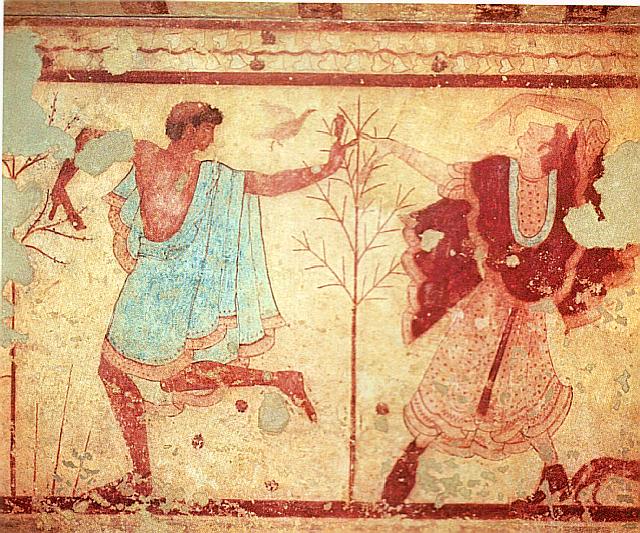1000-500 B.C.E.
Archaic Period
1000 B.C.E
I
I
I
900-800 B.C.E-------------
I
I
I
I
I
I
I
I
I
I
I
I
753 B.C.E -------------
I
I
I
I
I
I
I
I
I
700s B.C.E. ---------------
I
I
I
I
I
I
I
I
I
I
I
I
600 B.C.E ----------------
I
I
I
I
I
I
I
I
I
I
I
I
I
I
I
753-509 B.C.E ---------------
I
I
I
I
I
I
I
I
500 B.C.E
I
I
I
900-800 B.C.E-------------
I
I
I
I
I
I
I
I
I
I
I
I
753 B.C.E -------------
I
I
I
I
I
I
I
I
I
700s B.C.E. ---------------
I
I
I
I
I
I
I
I
I
I
I
I
600 B.C.E ----------------
I
I
I
I
I
I
I
I
I
I
I
I
I
I
I
753-509 B.C.E ---------------
I
I
I
I
I
I
I
I
500 B.C.E
Founding of the Period
The Italian Peninsula was occupied by a mysterious group of people called the Etruscans. They are from the Eastern Mediterranean, and are thought to be the ancestors of the Roman people. Living in small, fortified city-states, the Etruscans formed small confederacies with other city-states. Each was ruled by a monarch, but late ruled by oligarchies.
The Italian Peninsula was occupied by a mysterious group of people called the Etruscans. They are from the Eastern Mediterranean, and are thought to be the ancestors of the Roman people. Living in small, fortified city-states, the Etruscans formed small confederacies with other city-states. Each was ruled by a monarch, but late ruled by oligarchies.
The Mythical Founding of Rome by Romulus
Two babies, Romulus and Remus, were abandoned by their mother and raised by a she-wolf. When older, Remus was chosen by the gods to be king, but Romulus assassinated him, taking control of Rome. (The name "Rome" comes from Romulus)
Two babies, Romulus and Remus, were abandoned by their mother and raised by a she-wolf. When older, Remus was chosen by the gods to be king, but Romulus assassinated him, taking control of Rome. (The name "Rome" comes from Romulus)
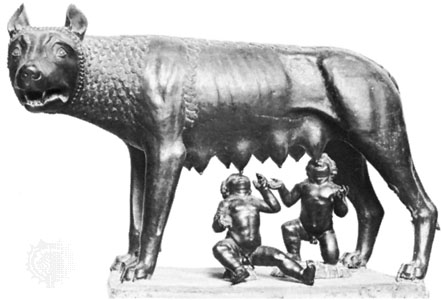
Etruscans Move Into Italian Peninsula
Starting in the Eastern Mediterranean, the Etruscans first migrated to Northern Italy and then spread southwards.
Starting in the Eastern Mediterranean, the Etruscans first migrated to Northern Italy and then spread southwards.
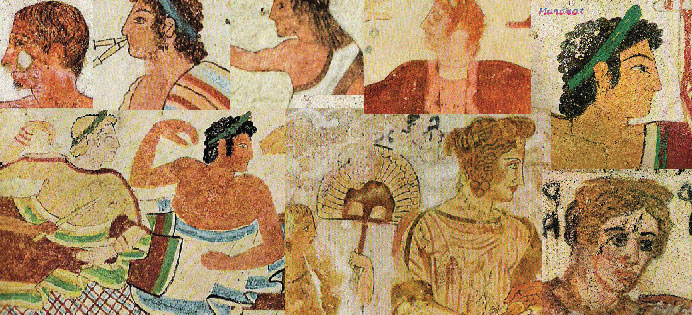
Rome Becomes a Province of Etruria
Etruscans take control of Rome.
Etruscans take control of Rome.
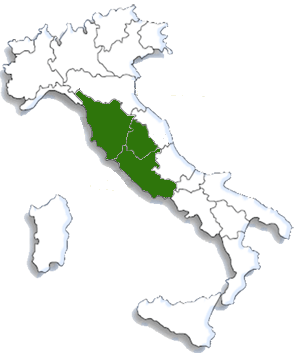
Agriculture Becomes Basis of Roman Economy
People occupying Rome, mostly Etruscans, are no longer nomadic and focus on agriculture.
People occupying Rome, mostly Etruscans, are no longer nomadic and focus on agriculture.

The 7 Kings of Rome
Starting with Romulus, who founded the city, seven legendary kings are said to have ruled Rome until 509 B.C.E, when the last king was overthrown. These kings ruled for an average of 35 years each.
Starting with Romulus, who founded the city, seven legendary kings are said to have ruled Rome until 509 B.C.E, when the last king was overthrown. These kings ruled for an average of 35 years each.
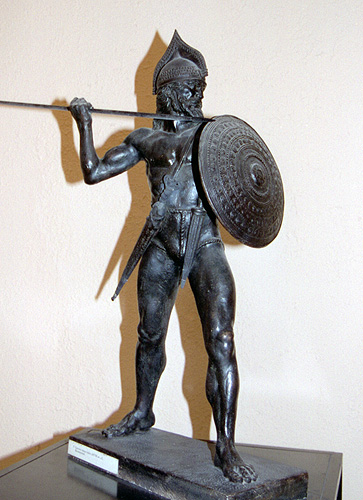
The End of the Period
The Republican Revolution overthrew the last Etruscan king, Lucius Tarquinius Superbus, and the republic was established. According to several historians, including Cicero, the spark which ignited the Republican Revolution was the rape of Lucretia by Sextus Tarquin, the king's son.
The Republican Revolution overthrew the last Etruscan king, Lucius Tarquinius Superbus, and the republic was established. According to several historians, including Cicero, the spark which ignited the Republican Revolution was the rape of Lucretia by Sextus Tarquin, the king's son.
